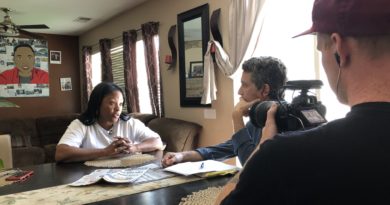Study shows why BIPOC first year students leave CPH
A study of Cal Poly Humboldt found that lack of representation, microaggressions, housing discrimination and assault were cited as traumas students of color experienced during their first year at CPH according to research presented by Angela Rich at the Feb. 7 University senate meeting.
These findings come from Latinx, Black and Native students who were contacted through ITEPP, Umoja Center, El Centro Académico Cultural and the Social Justice, Equity and Inclusion Center from 2013 to 2017.
Abran Neri, a mentor/training specialist with the Diverse Male Scholar Initiative (DMSI) at CPH feels like this lack of representation adds a barrier of communication.
“When I’m speaking to a white peer or staff, there’s almost a threat factor, if I say something too ghetto, too unscripted my professional points go down,” Neri said. “I don’t have to watch how I express myself around men of color as opposed to when I’m around white audiences.”
Neri explained that the staff of color who do work at CPH have to carry the weight and the responsibility of representing their demographic on their own.
“Even though there’s a lack of representation there’s also a lack of support,” Neri said. “We have amazing staff of color that are given this burden but not given enough support to execute what they would like to.”
Joseph Pang, 26, is a graduate student in academic research psychology who transferred from Sacramento. He is disappointed that there aren’t many male role models of color at CPH.
“Of the handful of Asian staff, one of them is sexually assaulting other faculty,” Pang said. “What the hell is going on here?”
Pang is referring to John Lee, the former dean of professional studies who was let go from his position following sexual assault allegations but returned to work as a professor using retreat rights in 2016.
Benicio Benavides, an international studies major with DMSI feels that more consistent funding for cultural centers would help students of color feel more comfortable.
“Ideally we should have a full time position dedicated to the efforts of DMSI, and a greater incentive to the development of these programs,” Benavides said.
Neri explained that if the school would put effort into getting to know the initiative and why it’s important, programs like DMSI or ADPIC wouldn’t need to depend on volunteers to stay open.
“We have to etch out our own space and step into a room and be proud of who we are. It’s tiring at times,” Neri said. “Are they taking us seriously? Maybe when we’re in their faces but after that I don’t really know what they think of us.”




